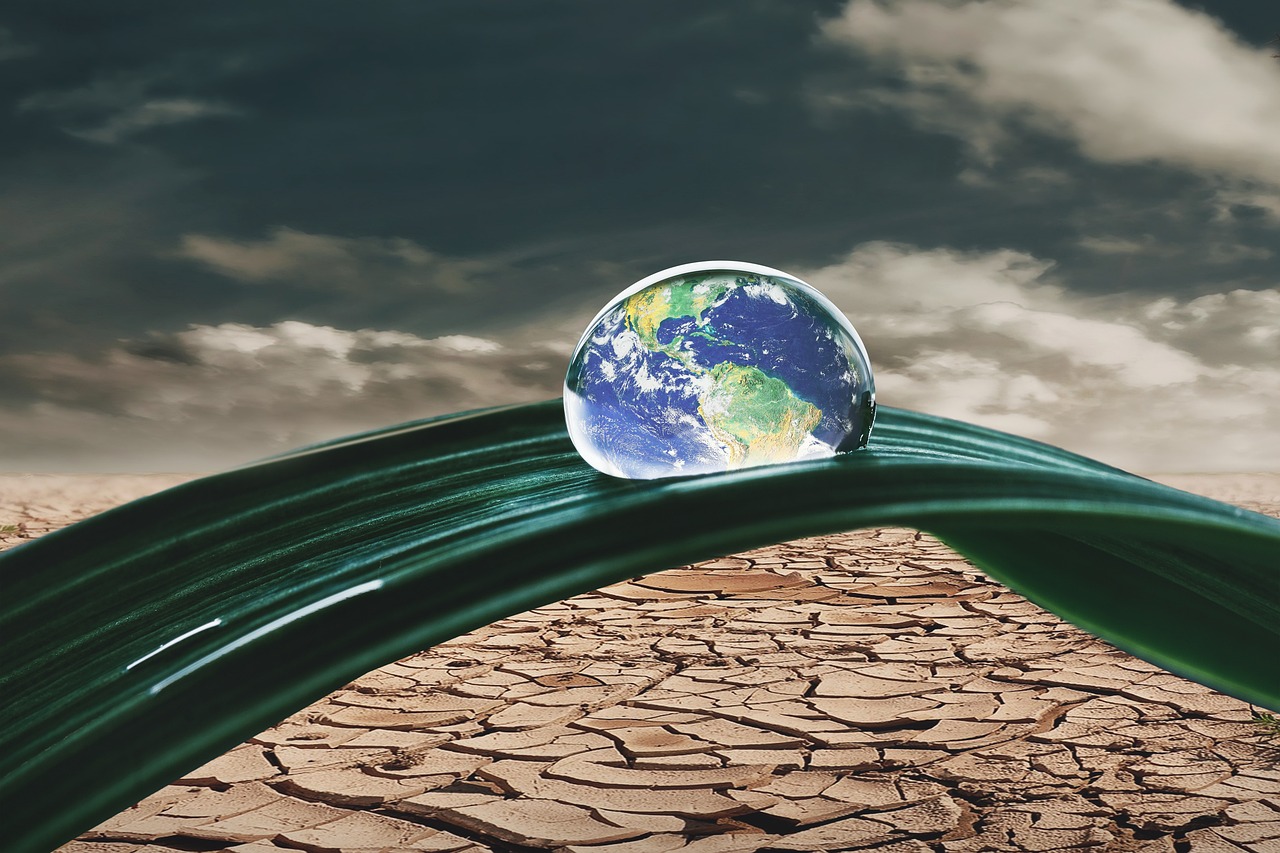Comment to article: van Daalen KR, Romanello M, Rocklöv J, Semenza JC, Tonne C, Markandya A, Dasandi N,et al. The 2022 Europe report of the Lancet Countdown on health and climate change: towards a climate resilient future. Lancet Public Health. 2022 Nov;7(11):e942-e965. doi: 10.1016/S2468-2667(22)00197-9.
What is known about the subject?
Due to human actions, the average global surface air temperature is 1.1 ºC higher than the average of pre-industrial times, with the last seven years reporting the hottest years on record1.
Climate change is increasing the frequency and intensity of many extreme weather events, causing serious damage to social and natural systems that health depends on. Environmental changes induced by climate change are also driving alterations in the geographic range of climate-sensitive infectious diseases, affecting food and water security, worsening air quality and damaging socio-economic systems.
During 2021 and 2022, extreme weather events caused devastations across every continent, adding further pressure to health services grappling with the impacts of COVID-19. Floods in Australia, Brazil, China. Western Europe, Malaysia, Pakistan, South Africa and South Sudan caused thousands of deaths and displaced hundreds of thousands of people. Wildfires caused devastation in Canada, USA, Greece, Algeria, Italy, Spain and Turkey, registering temperature records in multiple countries.
Due to the rapid increase of temperatures, vulnerable populations were exposed to more heat wave days in 2021 than the average for the period 1986-20052, and heat-related deaths increased by 68 per cent between 2000-2004 and 2017-20213.
The changing climate is also favouring the spread of infectious diseases, putting populations at high risk of emerging infectious diseases and co-epidemics. Coastal waters are showing more suitable conditions for the transmission of pathogenic Vibrio. The co-existence of dengue outbreaks with the COVID-19 pandemic aggravated pressure on health systems, misdiagnosis and difficulties in the management of both diseases in many regions of South America, Asia and Africa4.
The economic losses associated with the impacts of climate change are also increasing pressure on families and economies already facing COVID-19 pandemic synergistic effects, and the international cost-of-living and energy crises, which further undermine the socioeconomic determinants that good health depends on.
Through multiple pathways, food security is being affected by climate change, aggravating the impacts of other coexisting crises. Higher temperatures directly threaten crop productivity and supply chains, increasing socioeconomic pressures and the risk of transmission of infectious diseases. This undermines the availability, access, stability and utilization of food and leads to instability in global food systems, in synergy with other simultaneous crises to reverse progress made towards the eradication of hunger. This situation is now being aggravated by the Russian invasion of Ukrania5.
With the exacerbation of the impacts of climate change on health, populations around the world are increasingly relying on health systems as their first line of defense. However, right when the need for medical care increases, health systems worldwide are being weakened by the effects of the COVID-19 pandemic, and the energy and cost-of-living crises.
The year 2022 marks the 30th anniversary of the adoption of the United Nations Framework Convention on Climate Change, for which countries agreed to prevent the dangerous anthropogenic climate change and its negative consequences for human health and well-being. Yet, little meaningful action has been taken since then. Fossil fuel dependence is not only undermining global health through increased climate change impacts but it is also directly affecting human health and well-being through volatile and unpredictable fossil fuel markets, frail supply chains and geopolitical conflicts.
What does the study add to the literature available?
A new analysis of 103 countries shows that extreme heat days, which increase in frequency and intensity due to climate change, were associated with 98 million more people reporting moderate to severe food insecurity in 2020 compared to the average reported in 1981-20104. Insufficient climate change adaptation efforts have left health systems vulnerable to climate change-related health hazards. Only 48 of 95 countries have completed their climate change adaptation needs assessment7, and only 63 per cent of the countries reported a high to very high implementation status for health emergency management in 20218. Increasing adaptation to climate change has the potential to simultaneously improve the capacity of health systems to manage future infectious disease outbreaks and other health emergencies.
“The Lancet Countdown: tracking progress on health and climate change”is an international and interdisciplinary collaboration of 51 academic institutions and UN agencies established to monitor the emerging health profile of the changing climate.
The report is based on 43 indicators to improve tracking the relationship between health and climate change. The new and reintroduced metrics monitor the impact of extreme temperatures on food insecurity, exposure to wildfire smoke, household air pollution, the alignment of the fossil fuel industry with a healthy future, and considerations of health in each country’s Nationally Determined Contributions. These indicators are as follows:
- Health hazards, exposures and impacts
- Adaptation, planning and resilience for health
- Mitigation actions and health co-benefits
- Economics and finance
- Public and political engagement
What are the implications of the findings?
This document aims to take stock of the progress made on health and climate change. Indicators can be explored in full detail and geographic resolution thanks to the online data visualization platform shared with the report.
As countries try to meet the Paris Agreement goals, the Lancet Countdown indicators help provide evidence for national and international climate and health monitoring systems, and have been incorporated into the European Climate and Health Observatory and the climate and health assessment of the Italian National Institute of Health (Istituto Superiore di Sanità). In 2023, the UNFCCC will conduct the first Global Stocktake, an assessment of collective progress towards meeting the Paris Agreement goals, designed to help countries adjust efforts to meet climate targets. By taking stock of the impact of climate action on health, this report can help countries achieve the ambition of making the Paris Agreement the “most important public health agreement of the century”.
Despite decades of insufficient action, emerging signs of change, though few, provide some hope that a health-centred response might be starting to emerge; individual engagement with the health dimensions of climate change is essential to drive and enable an accelerated response.
References:
- Organización Meteorológica Mundial 2021 uno de los siete años más cálidos registrados, según muestran los datos consolidados de la OMM. https://public.wmo.int/en/media/press-release/2021-one-of-seven-warmest-years-record-wmo-consolidated-data-shows
- de Perez EC van Aalst M Bischiniotis K et al. Global predictability of temperature extremes. Environ Res Lett. 2018; 13054017
- Vicedo-Cabrera AM Scovronick N Sera F et al. The burden of heat-related mortality attributable to recent human-induced climate change. Nat Clim Chang. 2021; 11: 492-500
- Chang Y Chatterjee S Kim J Household finance and food insecurity. J Fam Econ Issues. 2014; 35: 499-515
- Vezzulli L Baker-Austin C Kirschner A Pruzzo C Martinez-Urtaza J. Global emergence of environmental non-O1/O139 Vibrio cholerae infections linked with climate change: a neglected research field? Environ Microbiol. 2020; 22: 4342-4355
- WHO Health and Climate Change Global Survey report. World Health Organization, Geneva2021
- Intergovernmental Panel on Climate Change. Pörtner H-O Roberts DC Tignor MBM Climate change 2022: impacts, adaptation, and vulnerability. Working Group II contribution to the sixth assessment report of the Intergovernmental Panel on Climate Change. Cambridge University Press, Cambridge, UK, and New York, NY, USA2022

Amor Escoz Roldán. Senior Environmental Health Technician, Environmental Science Specialist, Environmental Educator and PhD in Education Sciences



